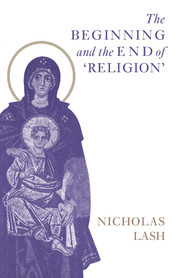3 - Reality, wisdom and delight
Published online by Cambridge University Press: 05 March 2012
Summary
LEARNING NOT TO WORSHIP THINGS
In a paper written in December 1863, but unpublished in his lifetime, John Henry Newman reflected on what we are doing when we try to speak of God. We know, of course, that all our words and thoughts and images are quite inadequate to the task but, says Newman,
We can only remedy their insufficiency by confessing it. We can do no more than put ourselves on the guard as to our own proceeding, and protest against it, while we do adhere to it. We can only set right one error of expression by another. By this method of antagonism we steady our minds, not so as to reach their object, but to point them in the right direction; as in an algebraical process we might add and subtract in series, approximating little by little, by saying and unsaying, to a positive result.
It is taken for granted, in sophisticated circles, that no one worships God these days except the reactionary and the simple-minded. This innocent self-satisfaction tells us little more, however, than that those exhibiting it do not name as ‘God’ the gods they worship.
In fact, whatever names we give to things, we worship things (especially ourselves) as naturally and as spontaneously as we breathe and speak. We have no option but to have our hearts set somewhere, to hold something sacred.
- Type
- Chapter
- Information
- The Beginning and the End of 'Religion' , pp. 49 - 72Publisher: Cambridge University PressPrint publication year: 1996



